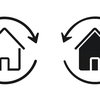What Type of Housing Is Best for Retirement?

Planning your retirement housing is crucial for comfort, financial stability, and access to essential services. This guide helps you assess your needs, explore options, and choose the best housing for your golden years.
Key Takeaways
- Assess Personal Needs and Goals : Consider lifestyle preferences, health and mobility, financial situation, and proximity to family and services.
- Explore Housing Options : Options include independent living, low-income senior apartments, assisted living facilities, government-subsidized housing, and nursing homes.
- Consider Critical Factors : Affordability, accessibility, community and social opportunities, healthcare services, and location are key when choosing retirement housing.
- Government Assistance : Low-income seniors in Canada have access to subsidized housing and assistance programs.
Planning for retirement is a large task for many and a quintessential part of this process is determining what type of housing is best for you and your family. The housing you seek is important when considering comfortability, financial stability, and access to necessary services. Retirement housing needs differ in most respects, depending on lifestyle, health conditions, and financial circumstances. This guide will look at determining your housing needs in retirement, the common housing options available , and considerations toward choosing the right type of housing for your best years ahead.
How to Assess Housing Needs for Retirement
Evaluating your personal needs and future goals is the first step toward suitable housing. Retirement is the start of another stage in life, which means that your housing needs can be very different from what you have experienced up until now because of work.
- Lifestyle Preference: Do you wish to live an active lifestyle profusely would you rather live an out-of-sight, quiet, community-oriented lifestyle? Your preference will affect the choice between independent living and more senior communities that may structure activities for you.
- Health and Mobility: It is crucial to consider your current and future needs. For example, seniors with chronic health problems will want to research communities with access to health care services or continuing care, while others might choose housing that offers minimal levels of support at the outset.
- Financial Situation: Another important factor is your budget which decides what kind of accommodation you can afford. For some seniors in Ontario, there is subsidization so that a retirement home can be more affordable and fitting for low-income retirees.
- Convenience to Family and Services: Oftentimes, the closer you are to family, healthcare, and recreational activities, the more enjoyable your retirement will be. Knowing what services mean the most to you will help you trim your choices in housing.
By better grasping these variables, retirees will be better equipped to make appropriate decisions about their future housing and make the transition into retirement living both smooth and comfortable.
Exploring Common Retirement Housing Options
There are several housing options available for retirees, each with unique benefits and challenges. Understanding these options can help you find the right fit for your lifestyle and financial needs.
- Independent Living: These are meant for active retirees who are capable of independently managing their daily needs. Often, these communities provide opportunities for socialization along with amenities like gyms, swimming pools, and community events.
- Senior Apartments for Rent Low-Income: Those retired persons who have a lower financial budget can go for senior apartments at an affordable rate. Such apartments allow income-based rental rates along with the design to ensure safety and comfort in one's living environment.
- Assisted Living Facilities: Assisted living facilities are residences where they will be provided with support on daily living activities such as bathing, dressing, and medication management. Assisted living works for seniors who wish to be independent but sometimes need help with day-to-day tasks.
- Government-Subsidized Housing for Seniors: Government-subsidized housing is one of the available housing programs for seniors in Canada. It may ensure a secure place of residence with necessary services provided at an affordable rent.
- Nursing Homes and Long-Term Care Facilities: Nursing homes are intensive-care medical facilities that have been designed to manage fully and treat related care of the elderly with grave ailments. They house those who require constant attention and medical care on a 24-hour basis.
By comparing these options, retirees will get a better picture of the type of housing that best fits their preferences and financial budget.
How do I assess my housing needs for retirement?
To assess your housing needs for retirement, evaluate your lifestyle preferences (active or quiet community), health and mobility requirements, financial situation, and desired proximity to family and essential services. This comprehensive evaluation will help you choose the most suitable housing option for a comfortable and enjoyable retirement.
Key Factors to Consider When Choosing Retirement Housing
Picking the appropriate housing would involve weighing several critical factors that ensure satisfaction for the retirees in the long term.
- Affordability: Retirement housing costs are very different; for retirees with limited incomes, subsidized retirement homes in Ontario and government-assisted programs are a good alternative. The second step is to determine how well each of these options will fit your retirement budget so you do not get into financial stress later on.
- Ease in Mobility/Accessibility: You should assess your housing options as your need for mobility alters now and later. Properties that have either ramps or elevators, or single-story models, would make your mobility significantly easier.
- Community and Social Opportunities: A social lifestyle is very important for mental health. Retirement communities and senior living facilities would host activities and events to foster social interaction among the residents.
- Healthcare Services: Accessibility to healthcare facilities remains one of the major concerns for the retirees who have continuing medical needs. Some types of housing, such as assisted living, offer health care services within the grounds, ensuring accessibility.
- Location: Whether it be urban, suburban, or rural, location is a major determinate in an individual's overall satisfaction. Most retirees in Ontario would look for housing that is closer to their family or recreational opportunities. In turn, the appropriate type of housing to be selected for retirement in Ontario will depend on availability of healthcare, affordable costs, and proximity to amenities.
Considering these variables on housing is important in guiding retirees on what would best suit and sustain them during their retirement.
Conclusion
Choosing the type of retirement housing is a big decision and requires a great deal of forethought. There are many options to consider, from independent living to government-subsidized housing, depending on personal preference, health concerns, and financial situations. Knowing what will work best for you will allow your retirement years to be much more comfortable and peaceful.
Whether you are preparing your retirement or helping a loved one find suitable housing, at Clover Mortgage , we will be able to walk you through the process with comfort and confidence. Reach out to us to find most appropriate housing that will fit all your needs.
FAQ
Does Canada have low-income housing for seniors?
Yes, there is low-income housing for seniors in Canada through government-run programs. Many provinces, like Ontario, have subsidized retirement homes and rental apartments with income-based rent so that seniors are covered with an option that is quite affordable.
What is considered a low-income person in Canada?
They determine who is a low-income earner in Canada, using the LICO threshold . The LICO threshold also varies by family size and location, as the cut-off is higher in urban areas compared to rural areas due to the cost of living. Seniors whose incomes fall below this threshold may be eligible for senior apartments for rent low-income or other assistance programs.
What is the difference between poor and low income?
The term "poor" usually refers to those living below the poverty line and cannot meet basic needs such as food, shelter, and health care. In comparison, the term "low income" refers to an individual or family earning a small income but above-poverty-line earnings. A lot of older adults in low-income circumstances have stable housing because of government-subsidized programs in senior housing.





